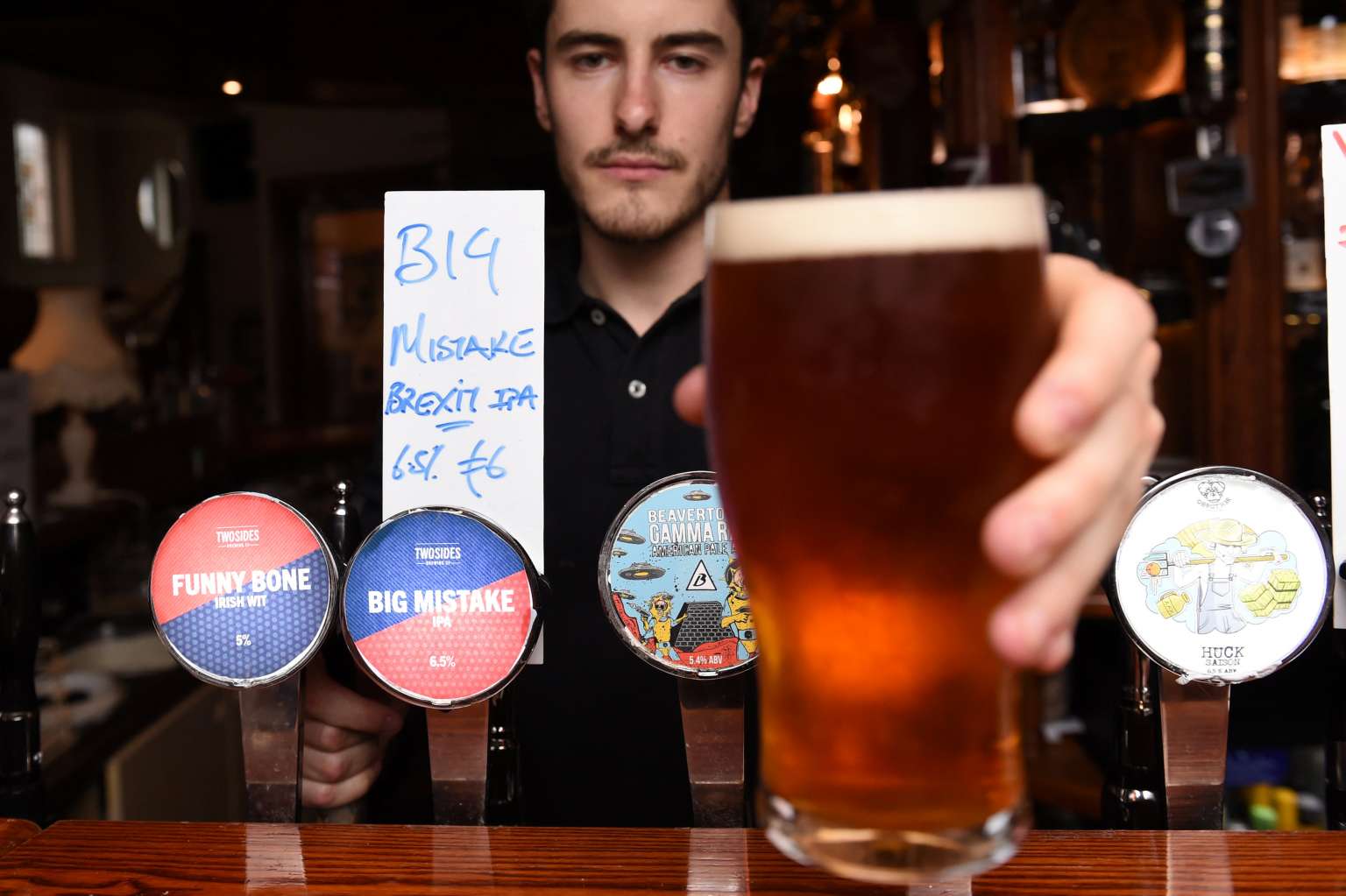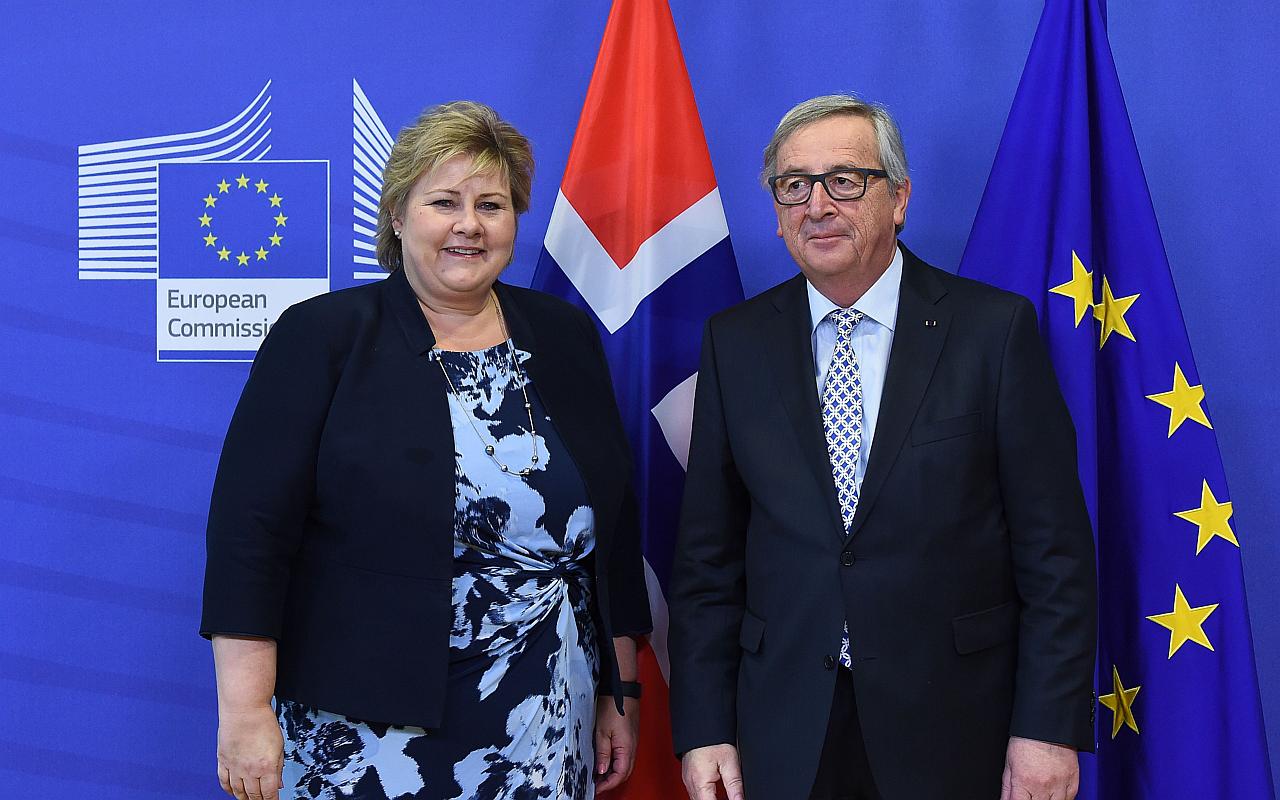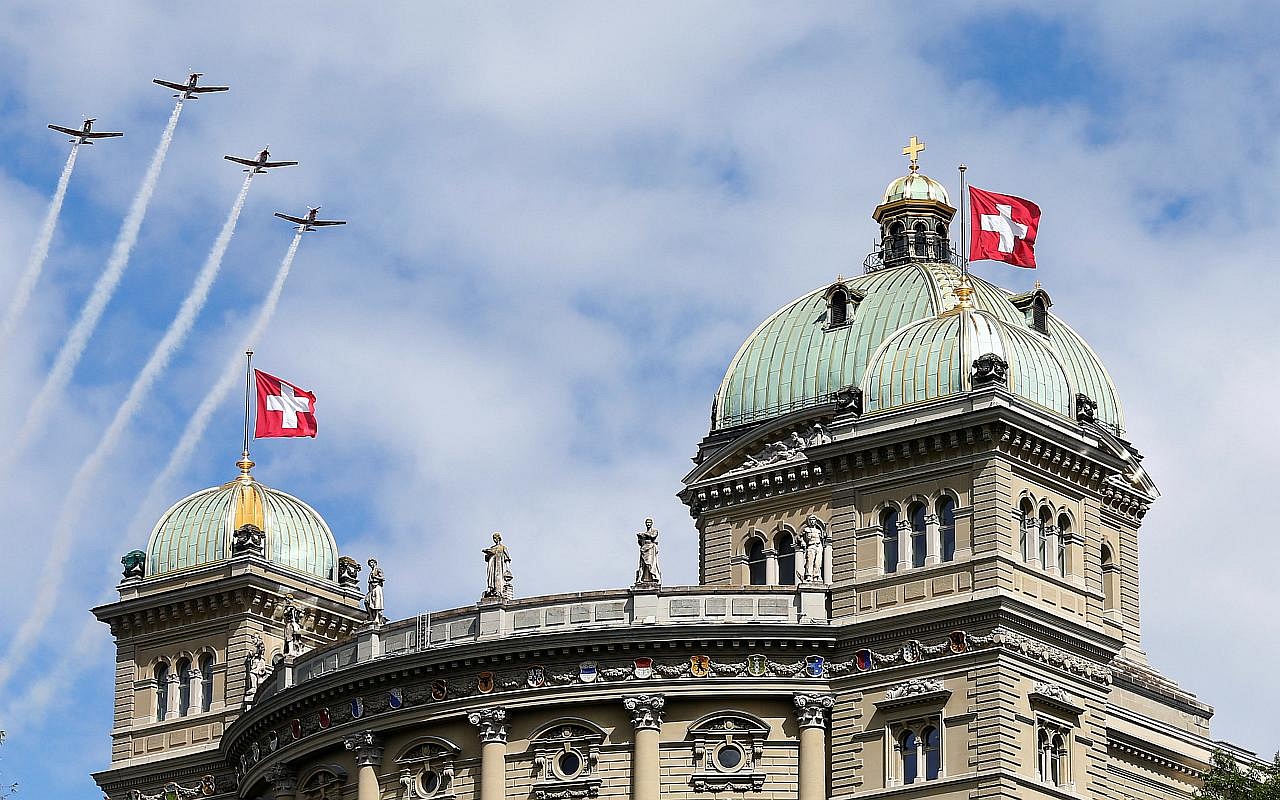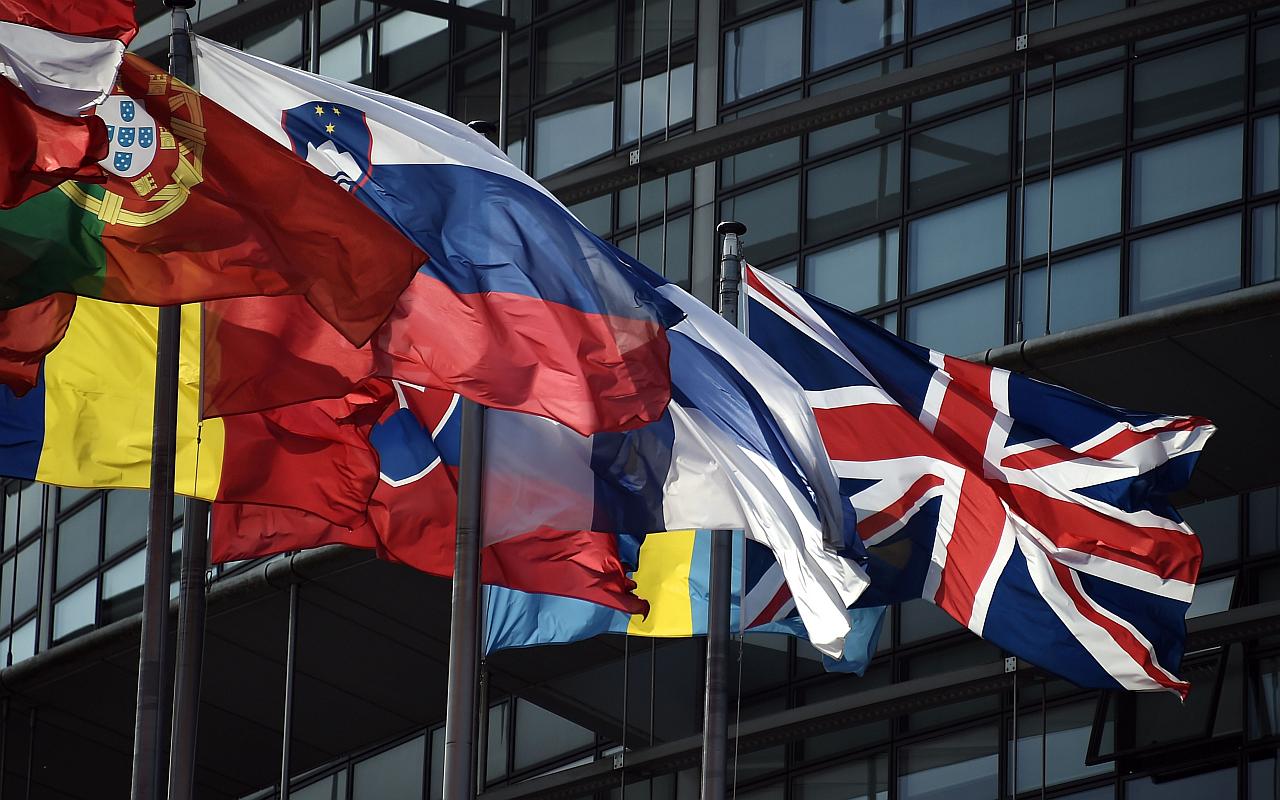Brexit: Lessons Britain could take from those outside the EU - Norway, Switzerland and Greenland
Sign up now: Get ST's newsletters delivered to your inbox

A bartender serving a specially crafted Brexit beer called "Big Mistake", in a bar in Dublin, on June 26, 2016.
PHOTO: REUTERS
Chew Hui Min
Follow topic:
Britain faces a leap into the unknown after the landmark Brexit vote on June 23.
The country joined the European Union's (EU) predecessor, the European Economic Community, in 1973 when there were nine members. The union has grown to comprise 28 member states, and none have opted to leave, until now.
Britain may now have to look to other European countries that are not part of the EU for signs of its future.
Greenland withdrew from the bloc in 1985 but the island of 56,000 people is an autonomous region of Denmark, which remains within the EU.
Norway and Switzerland - two of the richest countries in Europe - have opted to stay out.
But experts, and reports on post-Brexit scenarios, are not sanguine about Britain's prospects with either the "Norway" or the "Swiss" model.
THE NORWAY MODEL

PHOTO: AFP
Norway is one example of a country that has thrived without joining the EU. Its per capita GDP last year (2015) was US$61,542 (S$83,344), higher than Britain's US$41,351.
The Scandinavian country with a population of 5 million held two referendums on joining the EU in 1972 and 1994. Norwegians narrowly voted "no" on both occasions.
But Norway has been called a "surrogate member" of the EU, said Dr Reuben Wong, Jean Monnet Chair in European Integration and Foreign Policy at the National University of Singapore.
One can argue that it is more integrated with the EU than some member countries.
ECONOMY
While not part of the official Union, Norway is part of the European Economic Area. In this way, it has access to the European market but is not part of its political union.
Iceland and Liechtenstein have a similar arrangement.
They are consulted on new regulations and rules, but they cannot vote on them. They are exempt from policies on agriculture and fisheries but abide by a portion of EU rules in exchange for access to the single market.
Norway also makes financial contributions to the EU. A study by the London School of Economics earlier this year, estimated that they pay 83 per cent as much as Britain does into the EU budget in various fees.
Meanwhile, Britain has often held the EU at arm's length, and is not part of the Eurozone monetary union or signatory to the Schengen agreement which abolished internal border controls.
Britain "definitely" had a better deal within the EU than Norway does as an outsider, said Dr Wong.
POLITICS
Norway had no border controls with other EU countries while Britain does.
However, some countries, including Norway, reimposed temporary border controls after the Nov 13 Paris attacks.
While states in the European Economic Area are not subject to the EU in matters of foreign affairs, defence, immigration and criminal justice, the reality is that Norway has bilateral agreements with the EU on a wide range of policies in these areas.
Norway's Prime Minister Erna Solberg had urged Britons to stay in the EU. The pro-EU politician argued that Norway is integrated into the EU in many ways, but has no say in decision-making in Brussels, putting the country at a disadvantage.
Director of the Singapore-based European Union Centre Dr Yeo Lay Hwee agrees.
"Since Norway is usually not at the table when the rules are made, it means that Norway (or its business) has to 'pay' for lobby groups in Brussels in order to try and protect its interest," she said.
The Norway option implies that what "Brexiters" voted against - free movement of labour, budget contributions and accession to EU laws - will still be on the cards, but that it will be called a different name.
THE SWISS MODEL

PHOTO: REUTERS
Switzerland, which takes pride in its neutrality and independence, voted decisively not to be part of the EU in 2001.
Like Norwegians, the Swiss have a high standard of living, with a per capita GDP of US$60,491.
Nearly 77 per cent voted not to open negotiations for membership in the EU. In 1992, the Swiss also rejected the option of joining the European Economic Area.
The economic relationship between the country smack in the centre of Europe and the EU is defined in a raft of bilateral agreements.
ECONOMY
The finance industry, which provides one in three or about 1.25 million jobs in London, is particularly at risk.
Switzerland and the EU have not reached a comprehensive agreement covering trade in services.
Swiss banks, as well as other non-EU banks, chose to locate in Britain because they could do business with the whole of EU from London, currently the financial capital of Europe.
The European Central Bank has already warned that London risks losing its privilege to sell services to the rest of the EU countries.
"I think the other finance capitals in Europe will definitely try and jostle with London for supremacy, this will include Paris and Frankfurt," Dr Wong said. "It won't be immediate, but I think there will a decline."
Britain can, in theory, exit EU policies it does not welcome, but it could face stiff negotiations from the EU, perhaps more so than Switzerland.
"While Switzerland is under no formal obligations to adopt EU legislation, if it wants to continue 'unfettered' trade with the rest of the EU, EU legislation, rules and standards prevail," said Dr Yeo.
POLITICS
Switzerland, with a population of 8 million, is not obliged to adopt EU laws. But in effect, treaties signed have allowed in large part the free movement of goods, services, capital and people.
In recent years, EU officials have lost patience with this a la carte approach and have requested that Switzerland adopt something akin to the European Economic Area arrangement.
While it is in the Schengen area, Switzerland narrowly voted in favour of limiting immigration in 2014. The EU's reaction has been harsh,suspending Swiss participation in some of the research and sciences collaboration under the EU, said Dr Yeo.
The immigration row has affected negotiations on other issues and was put on hold until the referendum in Britain was held.
"Switzerland's independence from the EU is largely illusory and greatly exaggerated in political rhetoric," writes Dr Christian Nünlist, Senior Researcher at the Center of Security Studies in Zurich, in a 2014 analysis of what Brexit could mean for Switzerland.
THE GREENLAND MODEL

PHOTO: REUTERS
As part of Denmark, Greenland joined the European Economic Community in 1973. Upon achieving self-rule in 1979, it held a referendum in 1982 and voted to leave the bloc.
The territory of about 56,000 was concerned about the loss of fishing rights - a main source of revenue.
A treaty to end EU membership took three years to sign although the main bone of contention was just the fishing industry.
Today, it is one of 25 non-member countries and territories that have partnerships with the EU.
It has a free trade agreement with the EU but retain control over its fishing grounds. The agreement entitles Greenland to funding from the EU, and the sum earmarked for the island from 2014 to 2020 is estimated to be €217.8 million (S$328 million).
While its per capita GDP was US$43,365 in 2014, Denmark's was significantly higher at US$60,718. In addition, Greenland gets substantial subsidies from the Danish Government.
Some Greenlanders have even suggested rejoining the EU as debate over Brexit heated up.
Given the difference in population size - Britain has a population of 64 million - there are limited lessons to be drawn from Greenland's case.
THE BRITISH WAY?

PHOTO: AFP
Would Britain be able to negotiate a preferential agreement with the EU from the outside? That is another option that has been raised.
It should be noted that the Norwegian and Swiss models were negotiated when the EU expected them to join the union in time to come.
Switzerland, Norway, Liechtenstein and Iceland are the four remaining nations in the European Free Trade Association (EFTA), which ironically was formed under British leadership in 1960.
The trade bloc that also included the other Nordic countries competed with the then-European Economic Community, which became the EU.
The European Economic Area, now seemingly permanent, was expected to be transitory, and it was thought that states like Norway would join the EU eventually.
"Negotiating with the EU is not going to be easy", said Dr Yeo who thinks that Britain will end up being a "price taker" in talks with the union.
"Divorce is never fully amicable," said Dr Wong, who predicts that EU countries will give Britain a hard time to signal to other reluctant EU states that exit is not a viable option.

